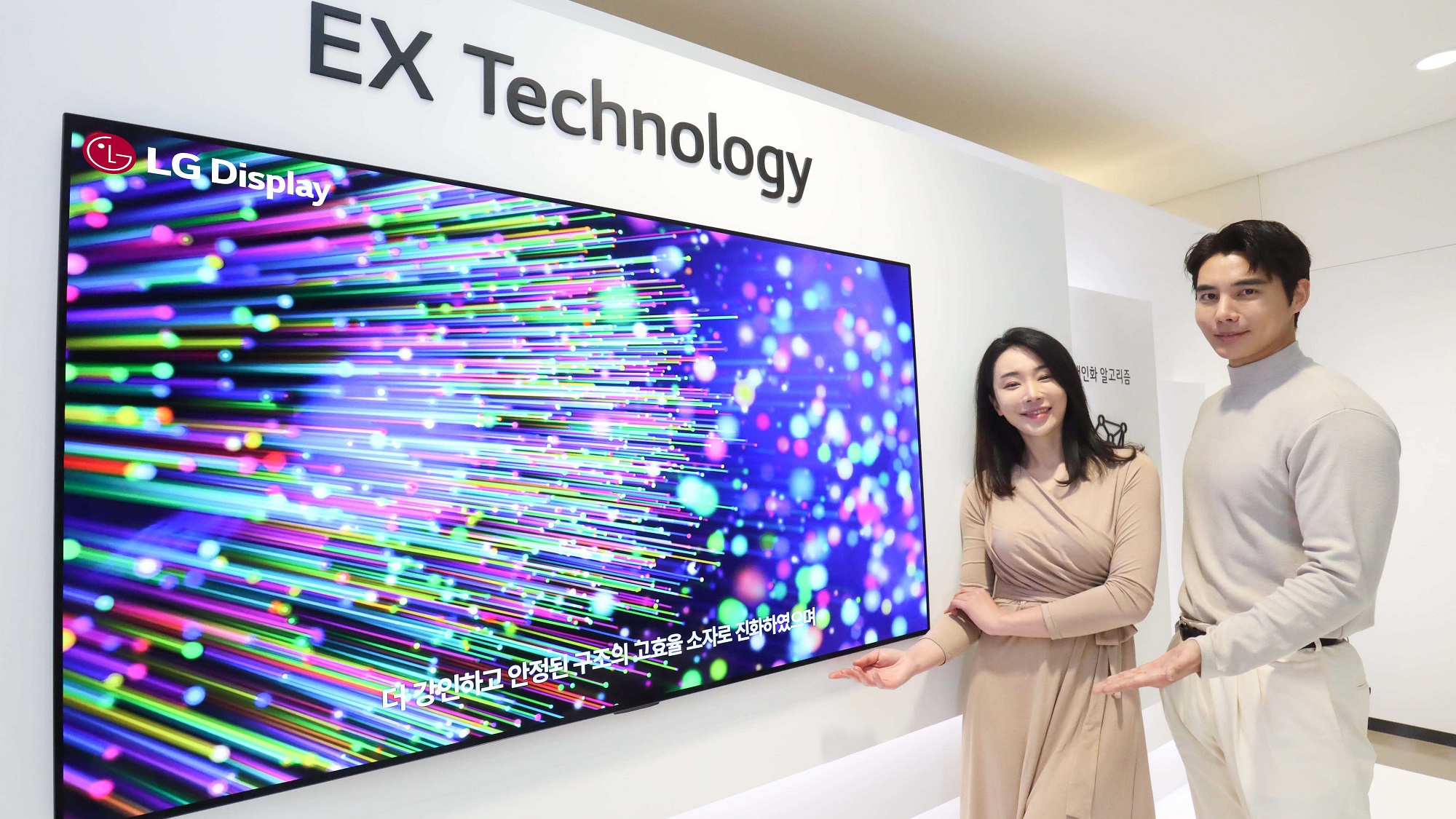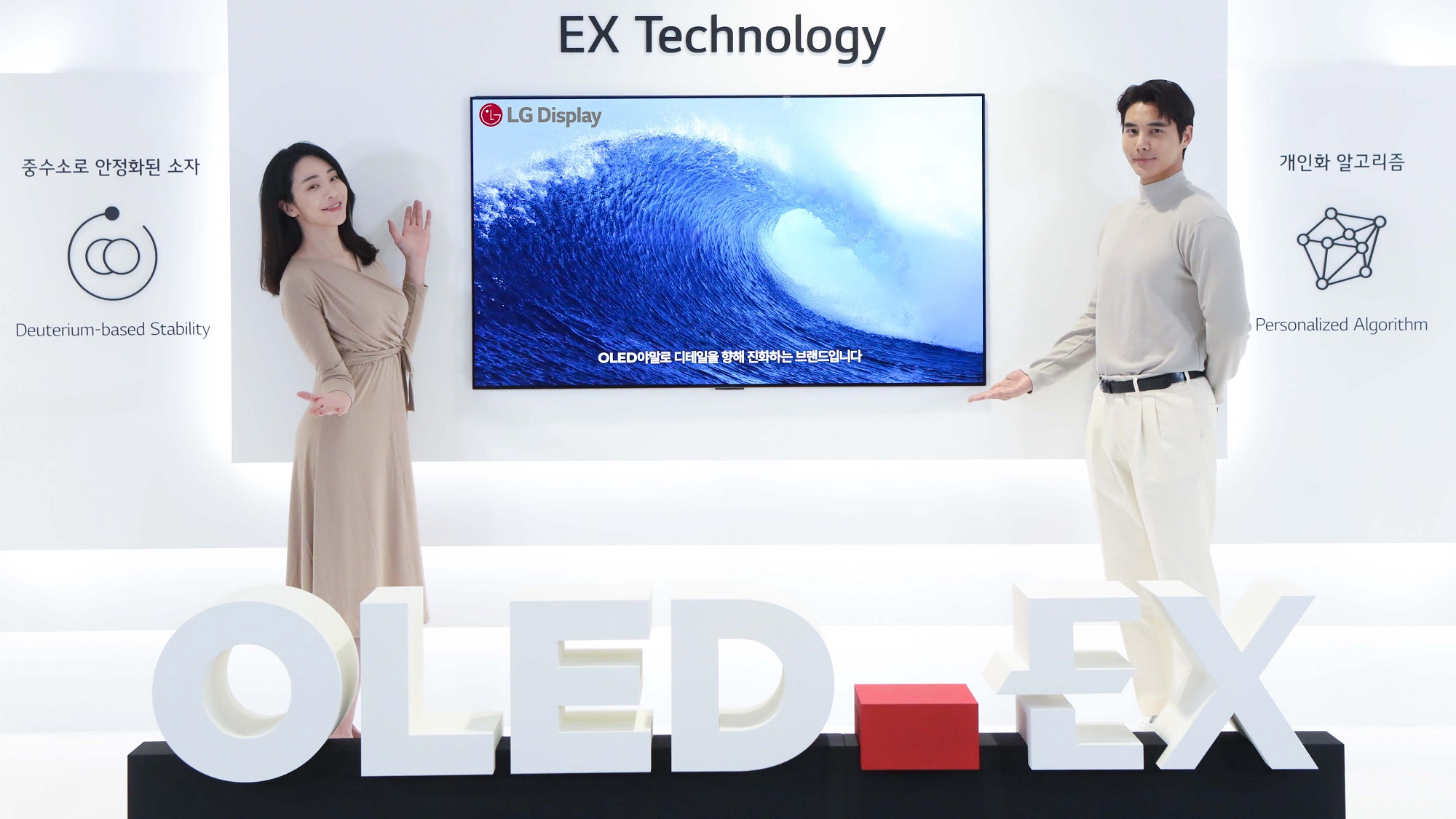
Update: Future LG OLED TVs could be transparent.
LG's OLED line of televisions have long dominated the market with its tremendous colors and deep inky blacks. But 2021 saw the technology finally succumb to mini-LED, a new take on LED televisions by throwing thousands of tiny LEDs for tremendous brightness and local dimming control.
It's why we named the Samsung QN90A Neo QLED as the best TV out right now, explaining why 2021 was the year QLED finally beat OLED. But in the lead up to CES 2022, LG Display has unveiled its next generation OLED technology, one that's aimed squarely at fixing its shortcomings.
In a press release, LG Display announced OLED EX, a next-generation display technology that combines deuterium compounds, an isotope of hydrogen (also known as heavy hydrogen), to produce a 30% brighter display. LG will also use "personalized algorithms" to ensure OLED (organic light emitting diode) stability and efficiency.
"OLED EX displays unlock new levels of picture accuracy and brightness to accurately deliver exquisite, realistic details and colors without any distortion — such as the reflection of sunlight on a river or each individual vein of a tree leaf," per an LG Display press release.

Of course, a brighter display causes concern for burn-in, a small drawback to OLED displays. While manufacturers have done a good job of reducing burn-in with pixel shifting techniques, in certain use-cases, static images, such as logos, can end up permanently present on the screen as a faint after-image. Still, this requires very specific use, like leaving a news channel on for hours over many days or months or using an OLED display as a computer monitor, where static elements may linger for a long time.
"LG Display has worked out how to extract deuterium from water and apply it to organic light-emitting devices," continued LG Display in the press release. "When stabilized, the Deuterium compounds allow the display to emit brighter light while maintaining high efficiency for a long time."
Sign up to get the BEST of Tom's Guide direct to your inbox.
Get instant access to breaking news, the hottest reviews, great deals and helpful tips.
Personalized algorithms are something that LG Display is also touting. These algorithms, based on machine learning tech, essentially tunes the power output to more accurately output color detail. The bezels have also been reduced, for 6mm to 4mm, lowering thickness by 30% compared to existing units. It's uncertain if this new line of LG OLED EX televisions will support the upcoming HDMI 2.1a standard.
OLEDs remain big business for LG Display, which saw a 70% growth in sales despite the TV market being down 12% this year. For Dr. Oh Chang-ho, executive vice president and head of TV business unit at LG Display, he wants the company "to provide even more innovative, high-end customer experiences through the evolution of our OLED technology, algorithms and designs."
Imad is currently Senior Google and Internet Culture reporter for CNET, but until recently was News Editor at Tom's Guide. Hailing from Texas, Imad started his journalism career in 2013 and has amassed bylines with the New York Times, the Washington Post, ESPN, Wired and Men's Health Magazine, among others. Outside of work, you can find him sitting blankly in front of a Word document trying desperately to write the first pages of a new book.

